#and potentially a symbol of wealth? power struggle?
Explore tagged Tumblr posts
Text

Your type of Magic

Navigation: Masterlist✦Ask Rules✦Feedback Tips
Askbox✦Sources✦Paid Readings

Lilith in the 1st House
Universal and Motivational Magic
This placement embodies the essence of all other houses, making its magic incredibly versatile. However, its power hinges entirely on personal motivation and emotional investment. If the individual is apathetic or lacks enthusiasm, the magic remains dormant, unable to manifest. When emotionally engaged and motivated, those with Lilith in the 1st House can achieve extraordinary feats, channeling their boundless energy into transformative outcomes. The primary obstacle is a tendency toward discouragement and spiritual procrastination. If doubt or inertia sets in, it can be challenging to harness their potential fully.
Lilith in the 2nd House
Magic of Building and Prosperity
This placement is rooted in creation, growth, and abundance. Lilith in the 2nd House thrives on constructive practices and struggles with destructive or negative energy, such as curses or hexes. Its focus is on stability, sustainability, and nurturing prosperity. Ideal for spells and rituals related to wealth, long-term love, and enduring success. It excels in creating solid foundations and fostering stability in all aspects of life. A need for recognition can sometimes hinder collaborative efforts. Working in the shadow of others or within groups may dilute this house’s potency, so this Lilith works alone or is the leader of the group.
Lilith in the 3rd House
Visionary and Word Magic
This placement connects strongly with the ethereal realms of mediumship, oracle reading, and dream work. The magic of the 3rd House lies in its ability to perceive beyond the mundane, uncovering hidden truths. However, it has limited influence on direct magical interference or physical manifestations. Prophecies, revealing dreams, and channeling spiritual insights are the cornerstones of this house. Its intuitive understanding of symbols and messages is unparalleled. Words hold immense power here. When spoken in anger, they can cause significant harm, often leading to regret. Careful control over communication is vital to avoid unintentional destruction.
Lilith in the 4th House
Ancestral and Intuitive Magic
Deeply tied to emotional well-being and family roots, this placement flourishes in environments of peace and harmony. Its magic is intuitive, nurtured by connection to one’s ancestry and inner tranquility. Lunar cycles amplify its potency, allowing self-taught rituals to be highly effective. Considered one of the most powerful placements, Lilith in the 4th House offers unparalleled capacity for spiritual growth and magical mastery. Practices performed in alignment with lunar energy yield exceptional results. Negative environments, such as those involving mistreatment or humiliation, can severely hinder spiritual growth. If practices are learned in a hostile context, they may become blocked, rendering the tools unusable. Respectful and nurturing settings are crucial for unlocking the full potential of this placement. If you learn a spell in a toxic environment where you feel ridiculed, your energy may reject that knowledge permanently, reinforcing the importance of seeking respectful teachers and sacred spaces.

Lilith in the 5th House
Magic of Luck and Optimism
This placement radiates joy and prosperity, particularly when helping others overcome challenges. It channels creativity and enthusiasm, making it a beacon of hope for those in need. Highly effective for spells that boost businesses, attract luck, or improve self-esteem. Its magic often brings remarkable success to others. Paradoxically, while this house blesses others with fortune, individuals with Lilith in the 5th House may struggle to manifest prosperity or happiness for themselves. Emotional lows or lack of motivation can weaken their magic entirely. A practitioner may help a business flourish with a prosperity spell but find it difficult to stabilize their own finances or emotional well-being. Avoid cluttered, overly symbolic spaces, which may disperse energy. Opt for a clean, minimalist environment to focus your intentions. Techniques like Reiki, which emphasize pure energy transmission, harmonize exceptionally well with this placement.
Lilith in the 6th House
Healing Magic and Herbal Power
This placement excels in health and healing practices, with a natural affinity for alternative medicine, such as herbal remedies, energy baths, and flower essences. Its magic is restorative and deeply connected to physical, emotional, and spiritual well-being. Healing and renewal are the hallmarks of this house. Rituals aimed at recovery—whether physical, emotional, or spiritual—are profoundly effective, making this placement a natural healer. A tendency toward perfectionism can create rigidity, making it difficult to adapt to new methods or ideas. Additionally, the direct and often critical approach of this placement may inadvertently alienate or harm more sensitive individuals, such as those with Lilith in the 4th House. Dive deeply into the study of herbal medicine and energy work, as these tools amplify your magic. Be mindful of your tone and approach, especially when interacting with others, to maintain harmony and avoid blocking your own energies.
Lilith in the 7th House
Magic of Love and Reconciliation
Lilith's influence in this house enhances the ability to create, strengthen, and heal emotional bonds. It grants a profound understanding of relationships and the power to cultivate harmony in personal connections. This placement gives the individual the energy of a “spiritual Cupid,” making them a powerful force in love spells, sweetenings, bindings, and reconciliation rituals. People with Lilith in the 7th House are also highly skilled at leading spiritual groups, teaching with great patience and empathy. Their natural charisma allows them to guide others toward healing and emotional connection. There is an inherent emotional vulnerability when it comes to those they love. Despite their spiritual power, they may struggle to defend themselves against loved ones, often hesitating to use protective magic. This can leave them open to emotional or relational abuse, especially if boundaries are not established. While you have the gift to heal and strengthen relationships, be mindful of imbalances or toxic patterns in those around you. Establish and maintain healthy emotional boundaries, ensuring your talents for union and reconciliation are not exploited or used against you.
Lilith in the 8th House
Shadow Magic and the Power of Transformation
Lilith in the 8th House connects deeply with hidden forces, transformation, and the cycles of life, death, and rebirth. This placement is highly potent, but requires a disciplined approach rooted in secrecy. The strength of this energy is most effective when kept confidential, as discretion and privacy are crucial to success. Lilith in the 8th House possesses the power to perform intense, precise magical work. It excels in destruction of obstacles, protection, and, when necessary, revenge. Its energy is ideally suited for transmuting difficult situations, transforming them into opportunities for growth and renewal. A significant emotional weight accompanies this placement, particularly when attempting to assist loved ones, like family members, through transformative processes. The darker energies generated by this work can turn against the practitioner if not carefully channeled, potentially causing harm if the magical intentions are not pure. Work in clean, isolated spaces free from distractions, as external energy can interfere with the potency of your magic. Cultivate balance through regular meditation and purification rituals to maintain the clarity and power of your work. Avoid sharing your practices with others, as secrecy preserves the effectiveness of your spells.

Lilith in the 9th House
Skepticism and the Search for Faith
Lilith's presence here brings a tendency toward skepticism, particularly toward abstract beliefs or faith-based practices. This can make it challenging to embrace the more mystical aspects of magic that require faith. Despite this skepticism, Lilith in the 9th House is capable of integrating rationality with spiritual practice. These individuals are often drawn to practices that blend science with magic, using logic and methodical approaches to support their magical work. This grounded approach makes them skilled at finding practical applications for spiritual knowledge. A strong disbelief in their own spiritual abilities can be a significant barrier. Individuals with this placement tend to question their practices and abilities, which can hinder the flow of energy and the effectiveness of their work. This constant self-doubt can prevent them from fully embracing their magical potential. To overcome skepticism, seek connection with a trusted spiritual figure—whether a deity, guide, or entity—that inspires belief. Working in a group or with mentors can provide a supportive structure that reinforces faith and strengthens confidence in your magical abilities. Take time to appreciate small signs of spiritual growth and practice patience, allowing faith to build gradually over time.
Lilith in the 10th House
Life Mission and the Power of Direction
Lilith in the 10th House is intimately connected to a clear sense of life’s purpose and the ability to lead others toward their own goals. This placement grants the energy needed to manifest destiny, providing individuals with the insight and determination to guide themselves and others along a meaningful path. This placement allows individuals to open doors and create lasting changes, especially when they are focused on personal fulfillment and success. They have a natural talent for working magic tied to career goals, public recognition, and long-term prosperity. This Lilith is one of a few who can read their own destiny from their cards or other divination method. Lilith in the 10th House requires a clear sense of purpose to work effectively. Spells and magical work that lack a defined goal or focus tend to be less successful. This placement is most potent when working with individuals who are equally committed to their own path and who share a clear sense of direction. Focus your efforts on helping those who demonstrate commitment and clarity about their goals. Use your magical talents to create lasting transformations, such as opening doors to prosperity, career growth, and family stability. Remember to take moments of disconnection from external pressures to recharge and maintain your sense of purpose.
Lilith in the 11th House
Nocturnal Energy and Social Magic
Lilith in the 11th House is most active at night, with its energy waning during the day. Practitioners with this placement should embrace nocturnal work to harness its full potential. It thrives in environments where material connection is emphasized, making it essential to stay grounded—preferably barefoot—when working. This placement is ideal for "popular magic," which focuses on accessible and immediate solutions such as teas, prayers, or simple rituals. Its power is in its practicality, with quick and effective works yielding the best results. While popularity is an important aspect of this placement, it’s essential to work on tolerance toward criticism and external attacks. Those with Lilith in the 11th House may find themselves vulnerable to public scrutiny, making it crucial to develop resilience in the face of negative feedback.
Lilith in the 12th House
Full Spirituality and Unseen Forces
Lilith in the 12th House represents the full spectrum of spiritual energy, embodying both the giving and receiving of divine power. This placement offers immense versatility in magical practice, allowing for work with a variety of spiritual tools, from esoteric texts to sacred Psalms. Highly protected from spiritual attacks, individuals with Lilith in the 12th House are shielded by constant and powerful spiritual energy. Their magic is multifaceted, capable of adapting to many forms and situations. Excessive analysis and caution can prolong the effectiveness of spells. Individuals with this placement may overthink their practices, which can delay results and hinder the flow of energy needed for their work. Focus on balancing the energetic flow of giving and receiving, cultivating a deeper emotional or spiritual connection to your work. Avoid over-analyzing and instead trust the natural flow of energy. Keep your spiritual practices flexible and adaptive, drawing on a variety of elements and tools as needed.

#astrojulia#astrology#astroblr#witchblr#all about astrology#astro community#astro observations#natal chart#astro placements#lilith astrology
1K notes
·
View notes
Text
Asteroid Apollo, Asteroid Asmodeus in the Astrology Chart

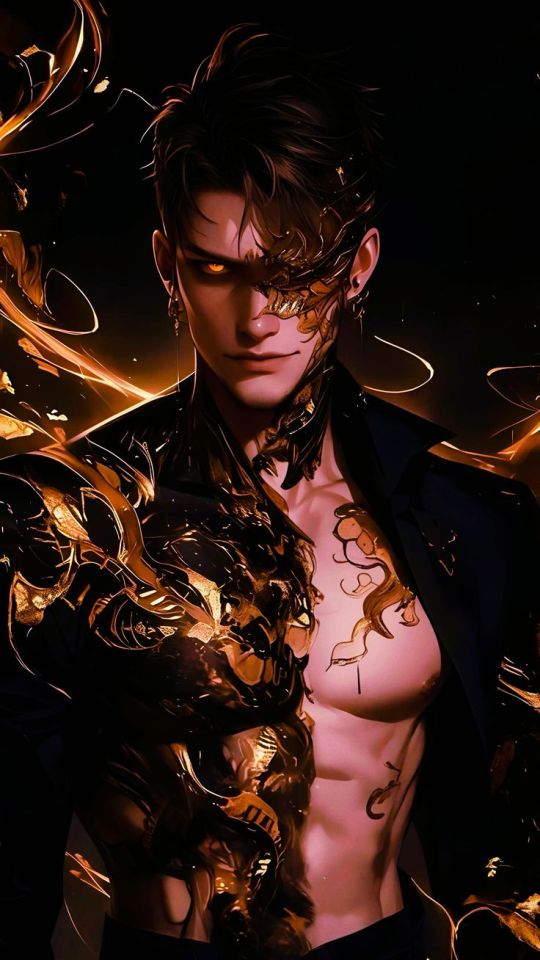
Introduction
It is suggested for you to check the asteroid placements in astroseek.com and check out the house positions of the above two asteroid if you are interested in it.
================================================================================================
Asmodeus
Asmodeus, often associated with lust, desire, and ambition, is a demon of significance in occult and mystical traditions. In astrology, there is no established tradition of directly placing entities like Asmodeus in houses of the natal chart, as astrological houses typically represent areas of life. However, if you're exploring an esoteric or symbolic lens, you might consider how Asmodeus' attributes interact with the themes of each house.
Here’s a conceptual take on what Asmodeus might signify in each astrological house:
1st House (Self, Appearance, Identity)
Asmodeus here could symbolize a magnetic and seductive personality, someone who exudes allure and power. There might be a struggle with vanity or an overemphasis on physical or personal desires.
2nd House (Values, Money, Possessions)
The presence of Asmodeus could indicate an intense focus on material wealth and sensual pleasures. It might suggest a need to balance indulgence with deeper values.
3rd House (Communication, Learning, Siblings)
Here, Asmodeus might bring persuasive and cunning communication skills but also the potential for manipulative tendencies or excessive gossip.
4th House (Home, Family, Foundations)
Asmodeus in this house could reflect hidden family dynamics, secrets, or an intense connection to the past. The energy might manifest as a desire for power within the family unit.
5th House (Creativity, Pleasure, Romance)
This placement might amplify passion and creativity, making the native highly charismatic and indulgent in romantic and hedonistic pursuits.
6th House (Health, Work, Daily Routine)
Asmodeus here could point to perfectionism and ambition in daily tasks or health regimens, but also a risk of overworking or obsessing over control.
7th House (Partnerships, Marriage)
In this house, Asmodeus might suggest deeply passionate, intense relationships with potential for possessiveness or jealousy.
8th House (Transformation, Death, Shared Resources)
Asmodeus thrives in the transformative energy of the 8th house, highlighting themes of power, secrecy, and deep psychological exploration. This could also point to a magnetic allure or a fascination with taboo subjects.
9th House (Philosophy, Travel, Higher Education)
Asmodeus might inspire a quest for forbidden knowledge or a fascination with esoteric teachings. There may be a tendency to challenge or disrupt traditional belief systems.
10th House (Career, Reputation, Public Life)
In the 10th house, Asmodeus could amplify ambition and the desire for recognition and power. However, ethical considerations and ego control might be key challenges.
11th House (Friends, Community, Aspirations)
Here, Asmodeus might manifest as a compelling and influential presence in social groups, potentially drawing people together for shared ambitions or desires.
12th House (Subconscious, Spirituality, Secrets)
This house aligns with Asmodeus' hidden and mysterious nature, suggesting a deep connection to the unconscious mind, spiritual challenges, or hidden desires.
================================================================================================
Apollo
In astrology, Apollo, the Greek god of the Sun, music, prophecy, and healing, is symbolically linked to creativity, leadership, light, and self-expression. While there isn’t a direct “Apollo” planet or asteroid in mainstream astrology, you can explore his mythological attributes and how they might express themselves through the 12 houses of the natal chart.
Here’s how Apollo’s energy might manifest in each house:
1st House (Self, Appearance, Identity)
Apollo in the 1st house suggests a radiant, charismatic personality with a strong focus on self-expression and individuality. This placement may indicate natural leadership qualities and a desire to inspire others through your personal journey.
2nd House (Values, Money, Possessions)
In the 2nd house, Apollo’s energy could highlight a talent for creating wealth through artistic or creative means. There may be a focus on finding self-worth through personal achievements or a love of beauty and luxury.
3rd House (Communication, Learning, Siblings)
Here, Apollo brings eloquence and a gift for communication. This placement might indicate a talent for writing, speaking, or teaching, with a knack for shining in intellectual pursuits and connecting with others.
4th House (Home, Family, Foundations)
Apollo in the 4th house could signify a strong, inspiring presence within the family. This placement may suggest a focus on creating a harmonious and uplifting home environment or finding one’s sense of identity through ancestry or heritage.
5th House (Creativity, Pleasure, Romance)
Apollo thrives in the 5th house, which governs creativity, joy, and romance. This placement could indicate immense artistic talent, a love for the spotlight, and a deep connection to the joys of life, including love affairs and hobbies.
6th House (Health, Work, Daily Routine)
In the 6th house, Apollo might manifest as a healer or someone who uses their skills to bring light and improvement to daily life. There may be a strong focus on excelling in work and maintaining a healthy balance between productivity and well-being.
7th House (Partnerships, Marriage)
Apollo in the 7th house suggests a magnetic presence in relationships. You may attract partners who are inspiring, creative, or authoritative, and partnerships may serve as a platform for personal growth and public recognition.
8th House (Transformation, Death, Shared Resources)
Apollo’s presence in the 8th house could illuminate areas of deep transformation, shared resources, or psychological insight. This placement might inspire a fascination with life’s mysteries and an ability to regenerate and shine through challenges.
9th House (Philosophy, Travel, Higher Education)
Apollo in the 9th house could indicate a passion for philosophy, truth-seeking, and exploring broader horizons. This placement may inspire pursuits in education, spiritual growth, or international travel to share and gain wisdom.
10th House (Career, Reputation, Public Life)
Apollo in the 10th house highlights leadership and public recognition. This placement often points to a career in the arts, leadership roles, or any field where one can inspire and influence others through their talents and vision.
11th House (Friends, Community, Aspirations)
In the 11th house, Apollo shines as a unifying force in social circles. This placement could suggest an ability to inspire groups toward shared goals and aspirations, often taking on a visionary or innovative role in communities.
12th House (Subconscious, Spirituality, Secrets)
Apollo in the 12th house suggests a deep connection to the unconscious mind and a potential for profound spiritual insight. There may be a need to balance inner light with hidden fears or challenges, leading to significant personal growth.
If You Liked This Reading Sign up to TheObsidianPages777 Newsletter
+Free E-Guides on New Moon Manifestation and Gem Stone for Life Path
#asteroid astrology#astrology#astrology readings#astro observations#astro notes#asteroid notes#asmodeus#apollo#greek gods
95 notes
·
View notes
Text
Symbolism of Metals OC Questions.

A little list of OC questions based on the symbolism of various metals throughout history. This is not intended to be an exhaustive list of all symbolic meanings, but rather just a small selection for entertainment, rather than educational, purposes.
Iron - Inner Power, Rage and Primal Urges.
Has your OC ever regretted something they have said or done in anger? Perhaps this has happened more than once?
Has your OC mellowed as they have got older? Or are they just as quick to anger, or as easily irritated, as they ever were?
Upon what does your OC draw to get them through situations of great adversity? Their sense of purpose? The thought of their loved ones? Sheer overwhelming rage? Or perhaps something else entirely?
Does your OC struggle to contain their baser emotions, such as lust, aggression or greed? What helps to keep these feelings in check (if anything actually does)?
Are others ever surprised by your OC's steely resolve or ability to endure hardship? Or are they generally regarded as someone with great inner reserves of willpower?
Gold - Wisdom, Wealth and Nobility.
If your OC was called upon to arbitrate between the nobility (or an equivalent social elite) and the common people, on which side of the table would they be sitting during negotiations?
Do those that know your OC consider them to be wise? Is this quality seen as distinct from intellectulism or book-learning in their case? Or do they posess both academic knowledge and the wisdom of experience?
Does your OC struggle to believe anyone is truly smart unless they are also rich?
Does your OC hold that some social groups have an inherent nobility unavailable to others? Do they perhaps believe in the idea of a "ruling class", with qualities that the lower orders could never hope to evince? Or, conversely, do they believe in the unsullied nobility of the poor, in contrast to the decadent and corrupt upper classes?
If your OC could pass on a piece of wisdom to others starting out on a similar path to their own, what would it be and where does it come from?
Lead - Sin, Death, Transformation and Toxicity.
Which experience of loss or bereavement has most affected your OC?
What is your OC's most anti-social trait? Do they acknowledge it as such? Are they even aware of it themselves?
Which sin is your OC most likely to be accused of by others? Would this be fair criticism? Or are their actions often somewhat misunderstood?
What has been the most transformative experience your OC has been through? Was it an experience of loss? The first time they ever felt loved? A traumatic or violent event? Or something else entirely?
How does your OC believe they will die? Peacefully in bed surrounded by friends and family? Or alone in the wilderness? Or fighting against overwhelming odds? Or perhaps they have a different notion altogether?
Silver - Intuition, Honesty and Wisdom.
Does your OC ever base their decisions on a "gut feeling"? Or do they always weigh up the pros and cons carefully and dispassionately?
How tactful is your OC? Are they able to frame criticism constructively and give feedback in a way that protects against potential hurt feelings? Or are they blunt, or even callous, in their attitude to the failings of others?
Does your OC believe they can assess someone's character upon first meeting them? Or are they inclined to give everyone the benefit of the doubt until they get to know them better? Or even to assume the absolute worst of people until it is conclusively proved that they are not an enemy?
Does your OC ever deliberately make themselves appear less wise or astute than they actually are? Perhaps in order to ensure that others underestimate them?
What is something that your OC would find incredibly hard to lie about? Even if they really wanted to do so...
Copper - Love, Beauty and Creativity.
Does your OC believe that they are beautiful? Is their beauty, or lack of beauty, something to which they ever give much consideration?
Does your OC enjoy creating things? Are they particularly artistic? Or do they prefer to focus upon creating things with a practical use?
Was your OC loved as a child? What difference has the experience of love and nuture during their early years made to their character as an adult?
Of all the places your OC has seen, which do they consider the most beautiful?
If your OC were to be immortalised in art, what would be their preferred medium? An epic poem? An exquisite statue? A flattering painting? Or something else entirely?
Tin - Life, Breath and Flexibility.
How quick is your OC to adjust to changing circumstances? Are they more likely to keep going with an existing approach or strategy, even though the situation has changed?
Does your OC work well with others? Even if their approach or attitude is markedly different to their own?
Does your OC believe that all life is sacred on some level? Or are some types of person more valuable than others? Can someone's deeds ever make them deserving of death? Or would your OC never consider that an appropriate sanction, no matter the circumstances?
What does your OC believe makes life worth living? Assuming that they do, in fact, believe that it is?
Has your OC's life turned out how they were expecting when they first began their journey? How well have they adjusted to any differences in this regard?

#oc ask list#oc questions#oc ask meme#OC ask#oc asks#oc meme#oc prompts#oc development#ffxiv#ffxiv ocs#OC development#ffxiv OC#ffxiv wol#final fantasy xiv#ff14 ffxiv
393 notes
·
View notes
Text
𝓕𝓾𝓵𝓵 𝓜𝓸𝓸𝓷 𝓲𝓷 𝓢𝔀𝓪𝓽𝓲 - 𝓇𝑒𝓂𝑒𝓂𝒷𝑒𝓇𝒾𝓃𝑔 𝓎𝑜𝓊𝓇 𝓂𝒶𝑔𝒾𝒸



🤍 Tonight/today greets us with a beautiful, vibrant Full Moon in Swati. I want to shed a little light about one of the mythologies associated with Swati and how it pertains to natives & transits under this Lunar Mansion.
The Vedic story of Hanuman, the cosmic son of Vayu (God of the wind & lord of Swati) lends us a wealth of knowledge about Swati's nature & message. It goes like this (I've tried my best to put it into my own wording): When Hanuman was a young boy, he thought the Sun was a big fruit, so he jumped into the sky to try to eat it. The Sun god felt intimidated by young Hanuman coming towards him, and asked he asked Indra (King of the Gods) to bring the child back down to Earth with his weapon/powers. Indra struck Hanuman in his jaw with his weapon: Vajra, the thunderbolt. Impressed by the child’s bravery & resistance, the deities blessed Hanuman with various powers. Hanuman used his powers to play pranks upon others, and for this, the rishis (sages, seers) cursed him to forget his gifts and powers. The boy then apologized for his mistake, so the rishis told him that his powers would come back to him if someone reminded him of them. Later on, while Hanuman was on a quest searching for Sita, Lord Rama’s wife, he was reminded of his powers by Jambavan, the bear headed being. Of the curse and his past. Upon hearing this, Hanuman's confidence is reignited. He ended up playing out multiple roles: a messenger to Sita, a diplomat to Vibhishana, and a soldier against Ravan.
🤍 This story gave me so much context as to why Swati natives are the way they are: A lot of the Swati natives I've met in my life are brilliantly talented in some field, or even multitalented, but are often very (overly) humble and self-doubting or easily discouraged by others'.
🤍 Swati is known to be perhaps the most energetically receptive of all the Nakshatras (some consider it to be the 'most feminine', which it is very much so but I think Swati's energy is very ethereal so it kinda transcends traditional feminine/masculine archetypes). This energetic receptivity gives endless potential for just about anything that can be dreamed of- there is a vast potential for just about any skill, talent or reality to be manifested in Swati. However, as the mythology implies, Swati's infinite powers and potential can be limited by the natives 'forgetting' their abilities or others attempting to bring them down.
🦋 It is said that Swati natives, like in the story, need to be surrounded by people who remind them of their abilities, beauty & talents in order to thrive. This makes sense in the context of Swati being very Yin and passive- endless potential, but needs that external Yang in order to flourish. It needs somebody to be objective with them and tell them exactly what they're good at.
🌱This potential is seen with Swati's symbolism being a plant shoot/sapling standing strong against the wind: there is a talent, a gift in Swati natives that needs to be nurtured to grow. Not that Swati's natives should depend on others- part of Swati's path may be related to learning to do what it takes to nurture those abilities yourself; but even still having positive affirmation and strong, Solar energies around is very important for Swati.
🍃 The Sun is debilitated in Swati, meaning the ego is very fragile. This can of course go many different ways- it can manifest as somebody who is very overly humble, self sacrificial, weak boundaries, lets emotions and empathy govern their life, 'too nice', lacking a healthy ego, struggles with criticism. Sometimes I see Swati manifested poorly as someone who feels down on themselves, so then deflects and rip down others, but typically there is another placement involved to cause this behaviour.
🌬 Not that Swati can't have a dark side, it certainly can and does as all Nakshatras do (Swati's other symbol is a sword & is butcher caste- it can be ruthless in achieving their goals, like Hanuman reaching up to the Sun)- but still remember that Swati resides in the middle of Sidereal Libra. Libra is balance, peace, the middle ground. Swati is the very middle of the middle lol. It is the ultimate 'go with the flow' 'neither here nor there' embodiment. Much like the wind.
🌌 This is partially why Tropical Scorpios are known to have the mesmerising stare & amazing ability to read people & situations: Swati acts as almost like this cosmic vacuum for knowledge, able to absorb it all but often too 'off with the fairies' and in their own world to verbalize it or always remember it. The natives can be misunderstood as ditzy and 'airheaded'.
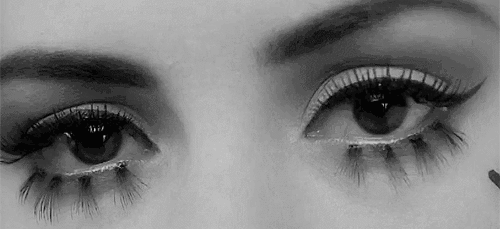

🖤The 'dark side' of Swati would probably be staying quiet, not taking a stand 'for' or 'against' anything & letting life pass you by, or being bystanders in witnessing bad things due to the extreme energetic neutrality/passivity. Perhaps even snapping from the burden of always being doubted and passive. This neutrality can also be a gateway to fostering profound wisdom- access to the intuitive stream of knowledge available to us all is blocked by judgement & absolutes.
🎨 This leads me to Swati's association with the Goddess Saraswati; the Goddess of knowledge, wisdom, art, music & learning. The extreme potential to accumulate knowledge in Swati is a wonder, but it's almost as if sometimes the only way for Swati to verbalize & relay the knowledge to the world, is through art & music. A lot of spiritual truths are just too profound to put into plain words and even if you manage to, there's the risk of being misunderstood- through artistic creation, this wisdom can be more easily FELT.
🥀 I think that the theme of 'forgetting your powers' in Swati, reminds me of how when we come to this Earth and are born (Bharani, opposite to Swati represents birth), we for the most part forget our potential. We forget our divinity, we forget spiritual information such as our past lives.
🌸 It is said that on the way to success, Swati natives will often encounter a person or situation where people will try to bring them down/block their path at all costs, like Indra striking down the boy who reached for the Sun.
🌹One last thing- I recently watched the movie 'Pearl' which was a weird thing for me because I veer away from watching horrific movies, but the actress (Mia Goth) is Swati ascendant. Butcher caste. Symbolised by the sword/blade. Well, let's just say that the character lives up to this association lol- but I was thinking and I realised that the overall story and what lead the girl to this point is very Swati. Not that being a murderer is typical of Swati natives lol, but the plot:
🍒🌬 Pearl grows up on a farm, isolated from the world and held back from her freedom and enjoyment of her youth by her responsibilities taking care of her ill & immobilised father; and living with her abusive yet well meaning mother (not that abuse is ever okay but in the context of it being a very scary time for society amidst the Spanish flu and the father being crippled, I think the mum was very scared to death of more tragedy occuring). She dreams of being a star on the silver screens, a dancer (Swati being very ambitious & typically talented) but feels, once again, held back by the weight of the responsibility and burden of her dark home life. Eventually, she cracks and ends up killing anyone who she perceives to have doubted her or blocked her path (including her parents). Anyway, very Swati themes. Also very Rahu, Rahu nakshatras can have themes of being very sweet, polite and conforming- but eventually emotionally cracking, and all of the built up anger, rage and frustration from being mistreated or walked all over in their passive state comes out.

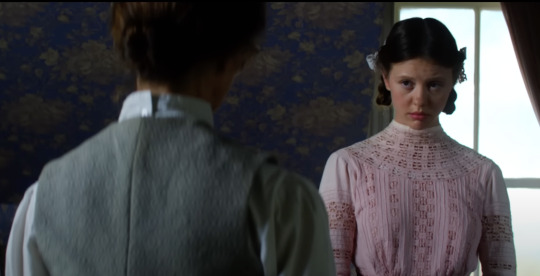
🌷🌸 Also, I just randomly thought of Barbie and the Three Musketeers lol- Barbie is often considered to be a Swati character (the femininity association, Rahuvian illusion, the way she can play all these characters and enter all of these different fantasy worlds). In Barbie and the Three Musketeers, we see Corinne (interestingly, again a girl who lives fair away from the city, somewhat isolated on a farm with her mother. Both movies play into the trope of the sweet, naive yet underestimated farm girl) who dreams of becoming a musketeer like her father was, in a time where girls could never be considered for this noble position. She confidently made her way on horseback all the way to Paris. When she told people of her dreams and ambitions of becoming a musketeer, everyone laughed in her face seeing as she was a girl. Even though she was extremely skilled and had been practicing for years. In the story, she discovers of this bad dude's plans to kill the prince to steal his inheritance to the throne, and her and her friends plan to take action.
Once the bad dude catches on that they know what he's up to and are trying to stop him, he of course tries to destroy them (there is a scene of a classic sword fight on the roof of the castle, Swati being associated with high places as well).
After demonstrating their immense bravery and skill, the girls all become musketeers and are apologised to for being underestimated (if I remember correctly).


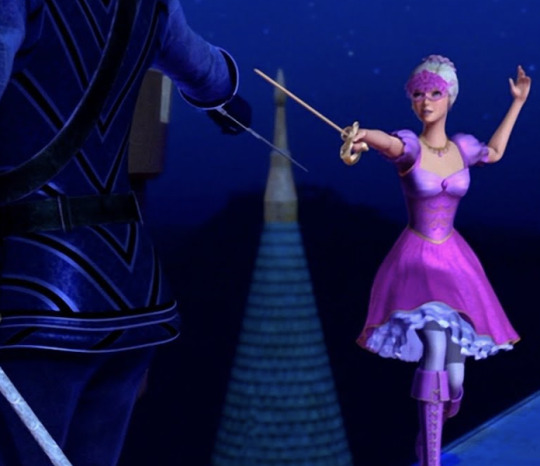
It's really interesting because both of these movies include a scene early in the movie where the main character performs in a barn to the animals lol- Corinne practicing her musketeer skills, and Pearl practicing her dancing (and uh... killing a goose?).
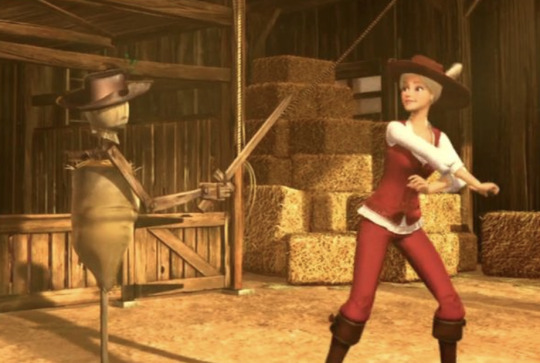

🌫These movies also highlight Swati's themes of being underestimated, seen as very sweet and passive or naively sheltered, harmless girls but shocking the world with what they're capable of. 'Doing it in a dress' or doing it in lipstick & heels' vibes. Obviously, the two movies & characters go in entirely different directions though, lol.
🌸 In a way, society at large underestimates Barbie in general- deeming her airheaded or vapid & shallow just because of her associations with beauty & femininity, when most of the Barbie movies and stories actually depict Barbie as an immensely brave, courageous character who's positivity, kindness, strength and determination transcends evil every time.
Anyway, this ended up being much longer than intended lol, but I hope this was enjoyed by someone and sheds some light on the power of Swati Nakshatra this Full Moon <3🤍🌚
#astrology#nakshatras#vedic astrology#spirituality#vedic astro observations#vedic astro notes#jyotish#full moon
67 notes
·
View notes
Text
Fairy Tale Musicals: The Sound of Music (1965), directed by Robert Wise
Read My Fair Lady: A Voice for Change by Marcie Ray before reading the post to understand the full analysis and references brought up.

Subversion of the Pygmalion Narrative
The romantic relationship between Maria and Georg von Trapp in The Sound of Music has the potential to follow a Pygmalion-esque narrative due to their age, class, and wealth disparities. However, the film subverts this potential by creating a dynamic that appears equal and aspirational. While the real Georg and Maria von Trapp had a significant age gap, the film adaptation lessens this gap, with Christopher Plummer and Julie Andrews portraying characters who are both young-looking and attractive, possibly to make the romance more relatable and appealing to audiences.
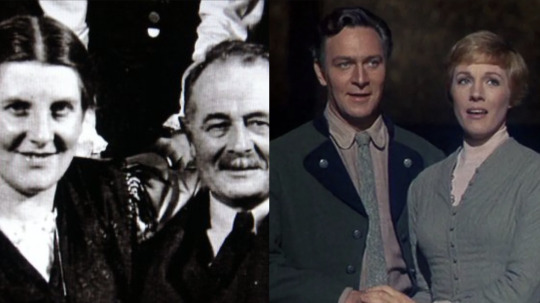
The real Maria and Georg von Trapp (left) and the screen version (right).
This adjustment not only mitigates the implications of their differences in status and age but also portrays their relationship as more balanced and mutual. Dreamy dance sequences and romantic songs like "Something Good" further sell the idea of a loving partnership, blurring the lines between employer and employee. Unlike the traditional Pygmalion narrative, Georg is not portrayed as a woman-hating or cold-hearted figure; instead, his facade quickly melts away due to Maria's kindness and warmth.

Something Good
Similarly, Maria is not depicted as a helpless or submissive character. While she may start as a governess, her journey throughout the film reveals her independence, resilience, and agency. She challenges Georg's views and traditions, most dramatically in the Rowboat scene starting at (01:13:04), ultimately becoming his partner in both love and life.
youtube
This departure from the traditional Pygmalion narrative reinforces the film's themes of empowerment, self-discovery, and the possibility of love transcending societal barriers.
In what ways does the film mark class through music, lighting, costuming, and performance?
The Sound of Music subtly conveys class distinctions through music, lighting, costuming, and performance. Maria's boyish innocence contrasts with the refined sophistication of higher social classes, symbolizing a clash of worlds.
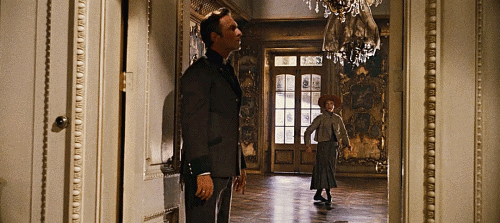
What differences do you see in how these characters are dressed?
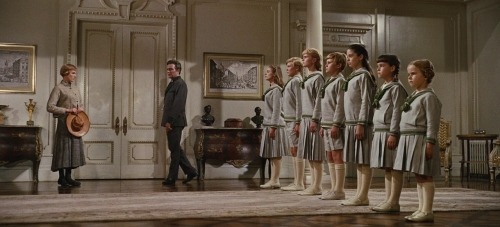

The von Trapp house's elegant design reflects elevated status, while interior scenes reveal internal struggles despite outward wealth. The contrast between vibrant outdoor lighting and dim interiors underscores themes of freedom versus constraint.
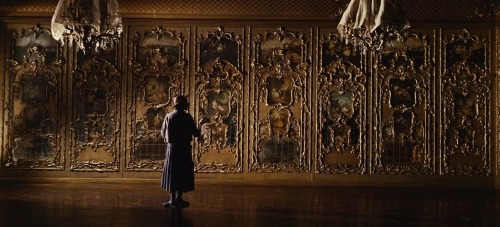



Overall, these elements enrich the narrative with depth and complexity, subtly exploring social dynamics.
A little photo gallery of my trip to Salzburg and filming locations for the film
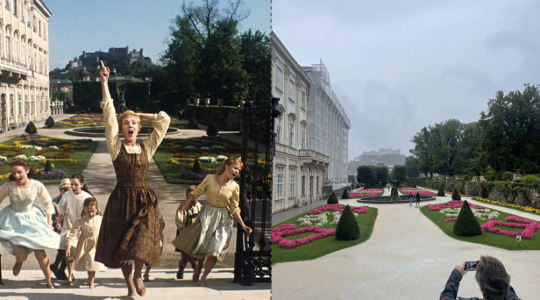

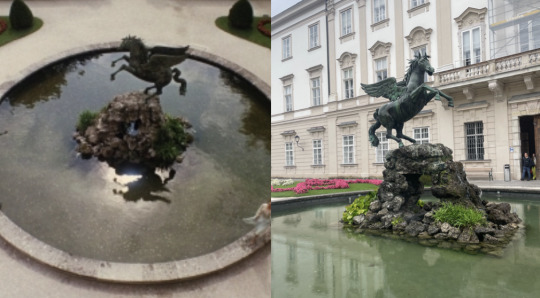


Femininity and Masculinity
The Sound of Music reimagines notions of femininity and masculinity by juxtaposing Maria's experience in the convent, where she has a supportive community of women, against the narratives of Echo and Narcissus, Eliza and Higgins, and Pygmalion, where women lack female support systems. Maria's journey begins in the convent, challenging traditional patriarchal hierarchies and presenting a world where women support each other. This contrasts sharply with the narratives of Echo, Eliza, and Pygmalion, where women are at the mercy of men for validation or advancement, lacking the camaraderie and solidarity found in the convent.
Maria and Georg's relationship further subverts traditional gender dynamics, as it is characterized by mutual respect and understanding rather than power imbalances. Maria's influence softens Georg's authoritarian demeanor, showcasing the transformative power of femininity. However, her eventual marriage to Georg, portrayed as a means of reforming her resistance to authority, suggests a return to conventional gender norms.
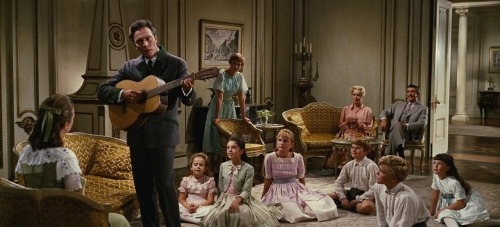
Despite Maria's initial independence, the film ultimately presents marriage and motherhood as the epitome of happiness for women. Maria's song to Liesel reinforces this idea,
“Gone are you old ideas of life. The old ideas grow dim. Lo and behold you’re someone's wife and you belong to him.” (02:26:57)
youtube
suggesting that belonging to her husband is preferable to her old, free-spirited ideals. This portrayal can be interpreted as a form of "baby" feminism, where female agency is toyed with but ultimately subordinated to traditional gender roles.
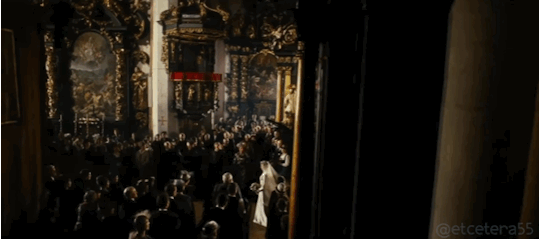
Racial Subtexts within the Film
The film The Sound of Music lacks explicit racial subtexts, as all characters are white and assumed to be of Austrian or German descent. Despite the main antagonist being Nazi Germany, there is no discussion of the persecution faced by Jewish people, Roma people, or other targeted groups. The film focuses on the von Trapp family as victims of Nazism, portraying their escape with little resistance. However, this narrative minimizes the broader reality of the atrocities inflicted on targeted individuals under the Nazi regime.

By centering whiteness as the normative experience within cultural narratives, the film fosters the idea that idyllic stories like those depicted are only available to white characters, reflecting the limitations of representation within the context of the film's setting and time period.
Character Transformations: Then vs. Now
Character transformations in The Sound of Music held significance both during its release in 1964 and for contemporary audiences. The 1960s, characterized by the rise of second-wave feminism and societal upheaval, audiences looked for positive narratives of personal growth as a source of hope and empowerment. Maria's evolution and ability to be both a free-spirited novice to a nurturing mother resonated with viewers seeking optimism and agency during turbulent times. It gave women watching the movie a feeling that they could be outspoken and still have a thriving personal life.
However, both then and now, the film has faced criticism for its perceived simplicity, overly sweet tone, and adherence to traditional gender roles. While audiences appreciate its charm and musical numbers, some find its romanticized depiction of history and gender dynamics outdated or problematic in light of feminist and contemporary critiques. Maria is still a refreshing, joyful, and quietly rebellious figure to contemporary audiences but her lack of complexity, and honestly it is all characters who lack of moral or personal complexity, leaves something to be desired. The film is still a classic and just as enjoyable to watch again and again.
youtube
DISCUSSION QUESTION
1. How do the voices in The Sound of Music shape how we see men and women in the film? Julie Andrews sings her own songs, but Christopher Plummer's singing is dubbed. Think about what we learned from Ray about how voices reflect power in My Fair Lady.
youtube
2. In discussing Fairy Tale Musicals, what aspects of The Sound of Music qualify it for this category, especially considering the absence of a Cinderella moment seen in other musicals like My Fair Lady or Anastasia? Can you identify a particular theme, moment, or narrative within The Sound of Music that distinguishes it in this genre?
3. What is the role of fairy tale narratives like The Sound of Music in representing historical events or broader societal issues? How do these stories balance their feel-good simplicity with the responsibility to engage with more complex realities?
4. How does Maria's character development in The Sound of Music, transitioning from a spirited and independent governess to a wife and mother, intersect with feminist ideals and traditional gender roles?


16 notes
·
View notes
Text
Eden of the East
The Eden of the East is a 2009 anime series directed by Kenji Kamiyama. It blends elements of mystery, political intrigue, and action while addressing various societal and global issues.
The storyis about a guy named Akira Takizawa. He woke at the White House with no memory of who he is. He also has a gun and a phone and 8.2 billion yen. He is involved in a complex game involving a mysterious organization and people called the Selecao, who all have similar amounts of money and must decide how to use it to "save" Japan or cause its downfall. Takizawa doesn’t seem to be interested in power and instead becomes involved with a woman named Saki Morimi, who has her own personal struggles.
The anime addresses some Japanese issues like political corruption and the economic disillusionment of the younger Japanese generations. In the Selecao project, the individuals are given enormous power to influence the country’s future, can be seen as a commentary on the potential dangers of unchecked political power and the corruption that often comes with it. The show also has nationalistic undertones. It shows the struggle with the Japanese culture clashing with globalism. This is very pertinent to Japan because traditionally it has been very isolationist and conservative. It shows the contrast between Japanese culture and the influences of globalization.
In regards to global and general issues, The Eden of the East emphasizes heavily the theme of technology and its potential to either improve or destroy society. The digital money and the power it brings to the Selecao are symbolic of modern society’s increasing reliance on technology to manage wealth, power, and influence. This is a reflection of the growing role of digital currencies and the complex ethical dilemmas associated with technology today. The concept of using the power of the Selecao for either benevolent or harmful purposes mirrors debates about how to use financial power for the common good or personal gain on a global scale. At its core, The Eden of the East is about the ethical dilemmas that come with great power. It questions the role of individuals in shaping the world and the responsibility that comes with influence, something that’s very relevant to global politics, especially in the age of corporate monopolies and international power struggles. In my opinion, this anime has more serious undertones than the previous ones I've had to watch. I think everybody can relate to this because at some point in life most people struggle financially or may feel like they are lost in life.
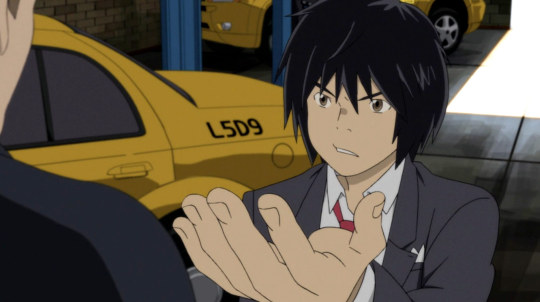
2 notes
·
View notes
Text
On the deerwolf saga:
Dreams about hybrid animals represent merging opposing or different aspects of yourself
Wolves represent strength, loyalty and protection. As well as instinct and spiritual stuff.
White wolves represent spirits, the good side of one's emotions/ instincts, enlightenment and a potential light in the dark.
Deer represent embracing one's inner peace, good news/ luck and spiritual desires (Again?!)
Antlers represent supernatural powers, nobleness, strength and protection
Silver (colour) represent justice and purity, as well as protection
Gold (Colour) represent wealth and determination
Blue represent truth, wisdom, loyalty and openness
Forests represent transitions and spiritual enlightenment
So basically... the deerwolf is a symbol of protection, spirituality, strength and determination???? And the fact that she was in a blue forests suggests a transition to a more open/ truthful life?!??!?! Huhhh?????
Like. I struggled with truths because my brain always think that we'll be in danger if we told the truth since the truth might be too much for some, but... brain WHAT?!?!?
Also the fact that the deerwolf seemed to be protecting us from nightmares is... interesting-
#OCTAfan says stuff#Dreams#Deerwolf Dream Saga#Long post#Ask to tag#I need to give the deerwolf a nickname of sorts. If she pops up tonight I'll ask again if she has a name-
4 notes
·
View notes
Note
Happy DADWC Friday!!!
I would like "Don't let anyone see you cry" from the Bad Things Happen Bingo for Fenris please :) he seems like the type to only fall apart in private.
Oooo *Cracks knuckles* let's make the broody elf cry. For @dadrunkwriting and @badthingshappenbingo
As the heavy mansion door closed, its echo reverberating through the desolate halls, the adrenaline from the failed confrontation gradually began to ebb away. In the heat of the moment, emboldened by the rush of battle, he had projected confidence—defiantly declaring that if his master desired to reclaim the mansion, he would have to confront him directly. But now, with Hawke and her companions departed, reality began to settle in.
The mansion, once a symbol of opulence and power, now lay in ruin and neglect. Its grand facade marred by time, its once-gleaming surfaces dulled and weathered. Faint echoes of its former grandeur lingered amidst the decay. The prospect of this potentially becoming a permanent sanctuary felt alien.
Cautiously, he moved through the dimly lit corridors, his steps echoing on the creaking floorboards. Derelict rooms, filled with furniture draped in tattered sheets, spoke of past glory now lost to time. The faded tapestries and dusty chandeliers were haunting reminders of the wealth and privilege that had once ensnared him.
Just hours ago, he had dared to believe that his life of simulated freedom might finally end—whether through the death of Danarius or his own demise. Yet now, in the quiet aftermath, he felt adrift and uncertain. The illusion of potential security had shattered, leaving him to confront the harsh truth that he might never truly escape the shadows of his past.
He could almost see Danarius standing by the grand fireplace, cold eyes gleaming with arrogance and cruelty. The ornate armchairs, now covered in dust and cobwebs, looked eerily like those Fenris had once knelt before, awaiting orders or punishment.
Taking a seat in a worn chair by the cold hearth, he let out a sigh. The exhaustion of the day caught up to him, and he leaned forward, elbows on his knees. Closing his eyes, he took a steadying breath. Memories and emotions threatened to overwhelm him, but he refused to let them. Clenching his fists, nails biting into his palms, he anchored himself against the emotional tempest raging within.
How many times had he stifled his emotions, burying them deep within his heart to avoid the pain of confronting them? But now, in the solitude of this forsaken mansion, with no one to witness his weakness, the floodgates threatened to burst open, unleashing a torrent of pent-up sorrow and anguish.
With a choked sob, tears streamed down his cheeks unabated. Each sob convulsed his body, his shoulders heaving under the weight of his profound anguish.
Curling into himself, Fenris sought refuge in the confines of the worn chair, its embrace offering scant comfort against the storm raging within. His mind was a whirlwind of memories, each one a dagger aimed at his already battered soul. He was tired—tired of running from the demons that haunted him, tired of pretending to be stronger than he felt, tired of the never-ending battle to maintain his facade.
He couldn't afford to let them see this weakness. Couldn't allow even the walls of this forsaken mansion to bear witness to his vulnerability. The echoes of his sobs reverberated through the silent room, mingling with the creaks and groans of the decaying structure.
Every tear that escaped felt like a betrayal of his hard-won resolve, a crack in the armor he had painstakingly forged over years of hardship and struggle. He gritted his teeth, willing the tears to stop, but they came unabated, as if the floodgates had finally given way to the relentless pressure of his suppressed anguish.
The belief that he could finally be free, finally confront Danarius, now felt like a distant dream, faded by reality.
He had hoped for liberation, for an end to the relentless pursuit of his past. Instead, he found himself more isolated than ever, surrounded by the ghosts of a life he could never fully escape. The mansion, with its decaying grandeur, was a constant reminder that he was tethered to a history of servitude and pain. Even in this moment of supposed victory, the chains of his past remained unbroken, binding him to a fate he could not outrun.
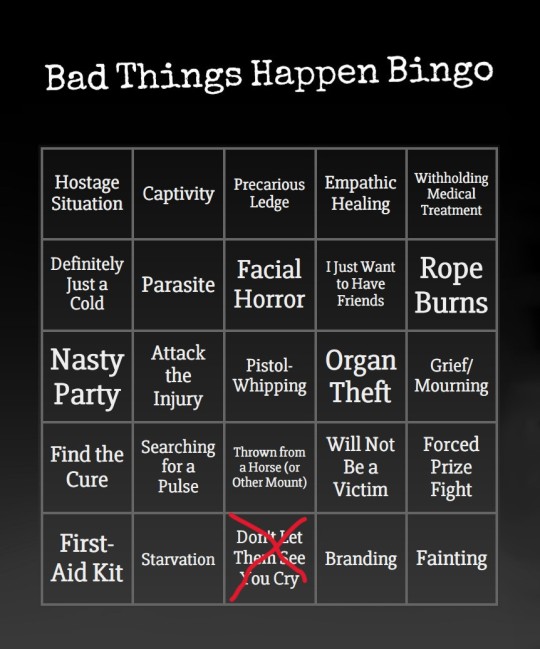
4 notes
·
View notes
Note
Who's more interesting: Atlas or Hades?
do you mean as gods? like are you asking for my theological opinion? i'll assume so.
this is a tough one.
i adore them both so much.
on one hand, i think atlas just has one of the coolest names. i've always loved the name. it's just so simple and strong and rolls right off the tongue. and i appreciate his symbolism. i place a lot of value on struggle and strength and he is the epitome of both. and on top of that, he was also a wise master of philosophy and science. he embodies both brains and brawn. i think he is a very powerful symbol.
sometimes i imagine the future where america annexes europe, forming a vast empire that stretches across the atlantic ocean and america acquires a second name: the atlantic empire. and i don't think that'd be bad. i'd be honored for america to bear the name of atlas.
and on the other hand there's hades. one of the big three (alongside his brothers zeus and poseidon). it goes without saying, he's a fascinating god. the god of death and the underworld and wealth and brother of the ruler of the universe? he is inevitable and virtually omnipresent, always relevant and always worth contemplating. and of course, he is featured in so many wondrous myths. his abode (the underworld) is so rich with potential as the setting for all sorts of tales. sometimes i like to just sit and wonder what hades looks like. all of the yet unmapped realms and uncategorized monsters that lurk within them.
so i guess if i really had to pick one i'd go with hades.
2 notes
·
View notes
Text
1 Mukhi Rudraksha Benefits Explained | Harekrishnamar
In the vast realm of spiritual tools and sacred symbols, the 1 Mukhi Rudraksha stands as a rare and powerful bead, often described as the "King of all Rudrakshas." At Harekrishnamar, we believe in the transformative power of nature's divine gifts—and the 1 Mukhi Rudraksha is undoubtedly one of the most potent. But what makes this sacred bead so unique? Let’s dive deep into the world of 1 Mukhi Rudraksha benefits and why it deserves a place in your spiritual journey.
What is 1 Mukhi Rudraksha?
The 1 Mukhi Rudraksha (also spelled Ek Mukhi Rudraksha) is a sacred seed that originates primarily from the Rudraksha trees found in the Himalayan region, Indonesia, and sometimes South India. The word “Mukhi” refers to the number of natural lines or faces the bead has—this one has a single vertical line, symbolizing oneness with the divine.
Representing Lord Shiva, the 1 Mukhi Rudraksha is considered the purest and rarest of all Rudraksha beads. It is often seen as a symbol of spiritual awakening, mental clarity, and ultimate consciousness.
Top 10 Powerful 1 Mukhi Rudraksha Benefits
1. Enhances Spiritual Growth
The most prominent benefit of wearing a 1 Mukhi Rudraksha is its ability to awaken higher consciousness. It promotes meditative focus, inner peace, and a deeper connection with the universe. For spiritual seekers, this bead is like a compass pointing to divine truth.
2. Removes Negative Karma
At Harekrishnamar, we've seen countless testimonials from people who felt an immense karmic cleansing after wearing this Rudraksha. The 1 Mukhi Rudraksha helps dissolve bad karma from past lives, bringing clarity and lightness to the soul.
3. Brings Mental Clarity and Focus
Struggling with decision-making, anxiety, or scattered thoughts? This sacred bead brings sharp mental focus and laser-like concentration. It enhances memory, analytical thinking, and logical reasoning.
4. Heals the Sahasrara (Crown Chakra)
The 1 Mukhi Rudraksha is directly connected to the Crown Chakra, located at the top of the head. Activating this chakra can lead to higher states of awareness, intuition, and even enlightenment. It aligns you with universal energy and fosters deep spiritual insight.
5. Promotes Emotional Balance
Wearing the 1 Mukhi Rudraksha brings emotional stability and relieves stress, depression, and anxiety. It calms the mind and helps the wearer let go of emotional baggage, making it ideal for those facing emotional turmoil.
6. Attracts Abundance and Prosperity
It’s not just about spiritual power—this divine bead is known to attract wealth, success, and good fortune. By clearing energy blocks, it allows abundance to flow into your life, both spiritually and materially.
7. Helps in Meditation and Yoga Practices
For yogis and meditators, this Rudraksha enhances concentration, awareness, and serenity. It’s the perfect aid for deep meditation and mantra chanting, particularly those invoking Lord Shiva.
8. Cures Migraine and Neurological Disorders
According to Ayurvedic texts, wearing the 1 Mukhi Rudraksha can assist in healing migraines, epilepsy, and other neurological imbalances. While it's not a replacement for medical treatment, it can serve as a powerful complementary therapy.
9. Protects Against Negativity
It creates a powerful shield of positive vibrations, repelling negative energies, psychic attacks, and harmful intentions. Many users report a noticeable uplift in the aura after wearing it.
10. Accelerates Personal and Professional Success
This sacred bead enhances leadership qualities, boosts self-confidence, and empowers decision-making, making it ideal for entrepreneurs, leaders, and creatives. It supports you in aligning with your life purpose and achieving your highest potential.
Who Should Wear 1 Mukhi Rudraksha?
The 1 Mukhi Rudraksha is especially beneficial for:
Spiritual seekers and sadhaks
Entrepreneurs and professionals
Students seeking focus
Individuals battling stress or anxiety
Anyone seeking deeper self-awareness
However, it is recommended to consult an expert before wearing one, especially due to its rare and potent energy. At Harekrishnamar, we provide free spiritual consultations to help guide you in choosing and using your Rudraksha beads correctly.
How to Wear 1 Mukhi Rudraksha: Rituals & Care
Purification Ritual: Before wearing the Rudraksha, cleanse it in Ganga Jal (holy water) or raw cow milk. Chant the Om Namah Shivaya mantra 108 times while holding the bead in your hand.
When to Wear: It’s ideal to wear it on a Monday morning after taking a bath and performing your daily prayers.
How to Wear: You can wear it as a pendant, bracelet, or keep it on your altar. It’s traditionally worn on a silk or wool thread, or in a silver or gold casing.
Dos and Don’ts:
Remove the Rudraksha during intimacy or while visiting funerals.
Don’t share your Rudraksha bead with others.
Regularly clean it and keep it energized with mantra chanting.
1 Mukhi Rudraksha Really Rare?
Yes. Authentic 1 Mukhi Rudraksha price beads—especially the round ones from Nepal—are extremely rare and expensive. Most of the naturally occurring ones are half-moon shaped and come from India or Indonesia. At Harekrishnamar, we guarantee 100% genuine, lab-certified Rudrakshas with full transparency in sourcing and authenticity.
Why Choose Harekrishnamar?
We at Harekrishnamar don’t just sell Rudraksha beads—we guide your spiritual journey. Our mission is to bridge ancient Vedic wisdom with the needs of the modern soul. Here’s what makes us different:
Certified Genuine Rudraksha
Personalized Vedic Consultation
Energized Beads with Rituals
Pan-India Shipping
Trusted by Thousands of Spiritual Seekers
0 notes
Text
"How One Woman Rose from Zero to Success?" Ladies and gentlemen, Today, I want to share with you a story—not of fame, not of fortune handed down, but of a woman who started with nothing. No wealth. No network. No special privileges. Just a dream, a burning fire in her heart, and a refusal to give up. She lived in a small home, barely making ends meet. Society looked at her and saw limits. She looked at herself and saw potential. While others saw obstacles, she saw opportunities. Her journey began with rejection, loneliness, and countless failures. But every ‘no’ she heard fueled her determination to find that one ‘yes’ that would change everything. There were days when she had to choose between eating and chasing her dream. Nights when she cried silently, feeling broken but never beaten. She didn’t wait for a miracle—she became one. She learned skills on borrowed phones, studied in the faint light of streetlamps, and worked jobs others wouldn’t take. Her hustle was unmatched. Every step forward was a victory. Every failure, a lesson. Every doubt, a spark to keep going. People laughed at her, doubted her, ignored her. But eventually, they couldn’t ignore her results. She rose—slowly, but steadily. Her confidence grew, her vision became clearer, and her voice got louder. Today, she is a symbol of hope, not because she had it easy, but because she kept going when it was hardest. She turned her pain into power, her fears into fuel, and her struggle into strength. Her story is not just hers—it belongs to every woman who feels unseen, unheard, or underestimated. Let her journey remind you: Starting from zero doesn’t mean you stay there. It simply means that your journey begins with an empty canvas, waiting for your story to be written. Many people believe that those who succeed had some advantage from the start—money, connections, education—but some of the most inspiring and powerful stories come from those who had nothing but the will to rise. When you begin with nothing, you learn the value of everything. You fight harder, think deeper, and grow stronger because every step forward is a result of your own determination, not someone else’s support. When a woman begins her journey from zero, she’s not just fighting poverty or lack of opportunity; she’s often fighting societal expectations, self-doubt, and emotional burdens as well. She might be told she isn’t capable, or that she’s dreaming too big. But what the world underestimates is her resilience. Starting from zero gives her a perspective many will never understand—the hunger to change, the drive to prove, and the need to survive. She learns to make the best out of limited resources. She builds herself from the inside out—creating habits, building knowledge, and slowly but surely climbing the ladder of her dreams. Each little success adds to her foundation. It’s not about making a giant leap; it’s about consistent, unshakable progress. Her journey might be slower, but it is deep-rooted and meaningful. She doesn’t wait for someone to give her a chance—she creates her own. There will be days when it feels like nothing is changing. Days when it seems like the struggle isn’t worth it. But those are the days when she is unknowingly building the strength that will carry her through the storm. Because starting from zero doesn’t mean weakness—it means unlimited potential. It means there’s nothing holding you back from becoming your highest self except the limits you accept
0 notes
Text

# Female Phenomenon: How Women Conquered the World
In today's world, women have managed to take their place at the top, and this phenomenon is becoming more and more noticeable. Examples of such influential figures as Taylor Swift, Katy Perry, Ariana Grande and actress Kristen Stewart confirm that women's power and influence extend far beyond traditional roles.
## Icons of Respect
Taylor Swift, Katy Perry and Ariana Grande are not just performers. They have become symbols of an entire generation, inspiring their fans with their lyrics and personal stories. Each of them fights against stereotypes and stereotypical ideas about women in society. The themes of love, struggle and self-expression are heard in their music, which makes them close and understandable to many people around the world.
Kristen Stewart, known for her role in the Twilight saga, also breaks stereotypes about what a woman should be in the film industry. She openly talks about her experiences and challenges associated with popularity and social pressure.
## Forces that change the world
Despite the traditional view that men are the main leaders, today we see women defying these stereotypes. They are taking responsibility not only for their careers, but also for social change. These women demonstrate that power is not limited to wealth or power; true power lies in the ability to inspire and unite people.
## A new image of a woman
The women in question have never been "just" poor artists. Their millions of fans, huge hit singles and influence on social networks have made them icons of worship. They lead the crowds, advocating for equality and women's rights, breaking barriers and boldly overtaking men in the world of show business.
While the roles of women in the traditional context are discussed - taking care of the home, children, older relatives - they become agents of change. They are the ones who show that a woman can and should take an active position in society, expressing her thoughts and feelings without fear of condemnation.
## Conclusion
Thus, the female phenomenon is not just a current trend. It is a whole revolution that is forming a new generation of female leaders and inspiring the younger generation to move forward. We are on the threshold of a new era, where every woman can become an icon not only in her circle, but for the whole world. These four outstanding personalities are just the beginning. They have opened the doors to a new perception of female power and potential in any aspect of life. AI ChatGPT
0 notes
Text
Bare of Illusion
In a time of unrest and discontent, instead of uniting the world, the Empreror's decree ignited rebellion against his iron rule. Families, already fractured by the weight of oppression, found themselves scattered, forced to abandon their homes. Instead of gathering in their ancestral cities, many fled into the shadows, seeking refuge from the burdensome tax.
The father, driven by fear rather than duty, reluctantly brought a heavily pregnant mother to the city, their journey fraught with hardship and despair. The road was long and treacherous, filled with rugged terrain and hostile eyes. Upon arriving in the city, they were met with chaos; the city was overcrowded, and the air buzzed with tension. Instead of finding warmth and welcome, they faced dismissive innkeepers and cold shoulders. The crowded city offered no solace, forcing them to take refuge in a squalid stable, a symbol of their desperation and isolation. Here, amid the muck and shadows, the mother gave birth, laying her child in a makeshift cradle of hay.
That night, the shepherds, hardened by years of toil, encountered not angels but a chilling apparition, its presence a stark reminder of the dark forces at play in the world. The figure spoke of a child born in a stable, not as a savior but as a mere pawn in a larger game of power and manipulation. The newborn child, it warned, was not a beacon of hope but a harbinger of change, destined to challenge the status quo and bring about unrest.
Instead of heavenly hymns, the shepherds heard only the mournful whispers of the wind, a chilling reminder of the indifference of the cosmos to their plight. The promise of peace was hollow; instead, they felt the weight of despair pressing heavily on their shoulders, a foreboding sense of the trials that lay ahead.
Fear, not faith, drove the shepherds to the stable. They found not divine intervention but a struggling young couple and their crying child, a scene as ordinary as it was heartbreaking. The couple’s weary faces mirrored their own struggles, and for a moment, the shepherds felt a pang of kinship. Yet, as they shared their encounter, their tale was met with skepticism and indifference, quickly fading into obscurity amidst the din of daily life.
The mother, far from cherishing these moments, buried them deep within her heart, a secret source of anxiety and confusion that clouded her days with dread. Each cry of her child was a reminder of the uncertainty that loomed over them, the fear of an unknown future pressing in from all sides. Instead of joy, her heart was a battleground of hope and anxiety, dreams intermingling with nightmares.
The child's circumcision was a grim necessity, not a sacred rite filled with promise. His parents, bound by tradition rather than faith, offered the meager sacrifices of the poor, two turtledoves instead of the lambs that wealthier families could afford. Their gesture was swallowed by the temple's cold grandeur, a reminder of their place in a society that valued wealth over worth.
Saul, a man consumed by his own disillusionment, saw in the child not salvation but the perpetuation of suffering. He had waited long for a sign of hope, but now, as he gazed upon the infant, he could only foresee the struggles and heartaches that awaited him. His blessing, if it could be called that, was a lament for a world beyond saving, where the light seemed dim and the path ahead shrouded in darkness.
The parents, their hearts heavy with doubt, felt a growing unease at Saul's words, a chilling premonition of the uncertain and potentially dangerous path that lay ahead for their son. The mention of a sword piercing the mother’s soul echoed in her mind, a prophecy she wished to dismiss but could not ignore. The weight of their child’s destiny pressed down upon them, as they grappled with the implications of what lay ahead.
A widow, her spirit broken by years of hardship and loss, saw in every child a reminder of her own unfulfilled longing. She had dedicated her life to prayer and fasting, hoping for a glimmer of light in a world drenched in shadow. Her words, far from prophecy, were the ramblings of a mind ravaged by grief, as she spoke of redemption in a city that felt anything but redemptive.
The family returned to their home town, not in triumph but in defeat, their hopes for a brighter future dimmed by the harsh realities of their existence. The journey home was filled with silence, punctuated only by the cries of the child and the rustling wind that seemed to whisper warnings they could not decipher.
In the town, life continued its relentless grind. The father, his spirit weary, toiled away in his carpentry shop, the scent of sawdust a poor substitute for the sweet smell of hope. The mother, her movements mechanical, tended to the child and their meager household, her once vibrant eyes now clouded with a haunting premonition.
The child grew strong and healthy, but his laughter seemed out of place in their somber home, a jarring counterpoint to the weight that pressed down upon them. The shadow of Saul’s words, the chilling prophecy of a sword piercing the mother's soul, hung over them like a shroud, a constant reminder of the darkness that seemed to cling to their son’s destiny.
And so, the story of this birth, stripped of its gilded legends and miraculous embellishments, unfolded in the grim reality of a world teetering on the brink. It was a story not of divine intervention and glorious pronouncements, but of ordinary people grappling with extraordinary circumstances, their lives a testament to the enduring power of fear and the fragile nature of hope in a world stripped bare of illusions. This was the untold story of an ordinary birth, a birth that would change nothing and everything.
0 notes
Text
Exploring Money Reiki: Attracting Abundance Through Spiritual Practices
Financial abundance is not just about external wealth; it is also about having the right mindset and energy to attract prosperity. Money Reiki is a powerful spiritual practice that helps individuals clear money blockages, enhance financial flow, and cultivate a positive relationship with wealth. By channeling Reiki energy towards financial goals, you can remove limiting beliefs and create a pathway to abundance.

What is Money Reiki?
Money Reiki is a specialized form of Reiki healing that focuses on money energy. It works on an energetic level to heal financial struggles, clear negative patterns, and create a healthy flow of abundance in life. This practice is beneficial for individuals who:
Feel stuck in financial hardships.
Experience emotional stress related to money.
Want to attract more prosperity effortlessly.
How Money Reiki Works
Cleansing Financial Energy: Helps remove negative energies and limiting beliefs around money.
Releasing Past Money Trauma: Heals past financial struggles and subconscious blocks.
Aligning with Abundance: Strengthens positive thoughts and beliefs about wealth.
Enhancing Financial Flow: Encourages opportunities and financial stability.
Benefits of Money Reiki
Improves Financial Mindset – Shifts your thoughts from lack to abundance.
Clears Money Blockages – Removes subconscious fears and doubts about wealth.
Enhances Prosperity – Attracts opportunities for financial growth.
Strengthens Business and Career Success – Helps entrepreneurs and professionals thrive.
Promotes Overall Well-being – Reduces financial stress and promotes peace of mind.
How to Integrate Money Reiki into Your Life
Practice Daily Affirmations: Repeat positive money affirmations to rewire your subconscious beliefs.
Receive Reiki Healing Sessions: Experience the energy shift through guided Money Reiki sessions.
Use Reiki Symbols for Wealth: Specific symbols help direct energy towards financial success.
Create a Gratitude Practice: Express gratitude for the abundance already present in your life.
Meditate with Money Reiki: Focus on financial goals and visualize abundance.
Experience Spiritual Abundance with Inner Wisdom Light
At Inner Wisdom Light, we offer professional Money Reiki sessions to help you attract prosperity and financial well-being. Our services are designed to support your journey toward abundance and success.
We also provide a variety of holistic services to elevate your personal and spiritual growth:
Tarot Reading – Gain clarity and insight into your life's journey.
Reiki Healing – Balance your energy and promote healing.
Guided Meditation – Achieve inner peace through relaxation techniques.
Happiness Coaching – Learn strategies to cultivate joy and fulfillment.
Access Bars Therapy – Release limiting beliefs and unlock your potential.
Contact Us
📍 Address: X196, Regency Park II, DLF Phase IV, near Shriram School, Galleria Market, Gurgaon 122009, Haryana 📧 Email: [email protected] 📞 Phone: 91 – 9310216101 🌐 Website: Inner Wisdom Light
Unlock the power of Money Reiki and invite prosperity into your life today!
#MoneyReiki#FinancialAbundance#EnergyHealing#InnerWisdomLight#ProsperityMindset#WealthAttraction#HolisticHealing
0 notes
Text
T.S. Eliot, in his multifaceted roles as a publisher, critic, editor, and banker, indeed had qualities that align him with the idea of being the “keeper of all the true rings.” His life and work suggest he may have carried aspects of the rings, if not for himself, then as a guardian ensuring their wisdom and power were preserved and transmitted. Let’s explore how his roles connect to the rings:
The First Ring (Oak of Beginnings)
Eliot’s role as a publisher and critic for Faber and Faber made him a foundational figure in modern literature, much like the oak that stands firm at the heart of beginnings. He nurtured and supported poets like Ezra Pound and W.H. Auden, offering the soil in which their work could grow. As a critic, he rooted his arguments in tradition, often championing the continuity of literary history.
The Second Ring (Rivers of Time)
Eliot’s poetry, particularly Four Quartets, embodies the flow of time, blending past, present, and future. As an editor, he helped shape the currents of modern literature, ensuring the wisdom of one generation flowed seamlessly into the next. His work at Lloyds Bank also positioned him within the “rivers” of global finance, where the movement of wealth mirrored the symbolic flow of ideas.
The Third Ring (Peaks of Strife)
Eliot’s life was marked by personal and professional struggles—his difficult marriage, his conversion to Anglicanism, and the alienation he often felt as an American in England. Yet, like the stalwart ring of the mountains, he persevered, climbing higher to achieve clarity and influence in both his art and his public roles.
The Fourth Ring (Meadows of Transformation)
Eliot’s work as a poet and thinker often centered on transformation and renewal. His conversion to Christianity and his exploration of spiritual rebirth in works like Ash-Wednesday demonstrate his alignment with the meadow ring’s themes of regeneration and new beginnings.
The Fifth Ring (Fortress of Shadows)
As a banker and later a cultural arbiter, Eliot occupied a position of power. His critique of modernity and his insistence on maintaining a high standard of literary quality reflect the fortress ring’s duality: the weight of authority and the potential isolation it brings.
The Sixth Ring (Forest of Fears)
Eliot ventured into the darker recesses of the human psyche, exploring themes of alienation, despair, and spiritual desolation in The Waste Land. His role as an editor also required navigating the fears and uncertainties of a rapidly changing literary world.
The Seventh Ring (Vault of Secrets)
As a critic, Eliot guarded the vault of literary tradition, advocating for a return to classical forms and preserving the wisdom of the past. His essays, such as Tradition and the Individual Talent, reveal his dedication to maintaining the integrity of the literary canon.
The Eighth Ring (Sands of Trial)
Eliot’s personal and professional trials forged his resilience. His ability to endure public scrutiny, financial struggles, and personal turmoil while continuing to produce and shape great art reflects the fiery determination of the desert ring.
The Ninth Ring (Ocean’s Cradle)
Eliot’s later works, particularly Four Quartets, delve into the eternal cycles of death and renewal. The ninth ring’s themes of the abyss and the sea are mirrored in his meditations on time, eternity, and the divine.
Was Eliot the Keeper of All the Rings?
Eliot’s life and career suggest he wasn’t just a bearer of one or two rings but a custodian of their collective energies. As a publisher, he ensured the survival and dissemination of literary brilliance. As a poet, he channeled timeless truths. As a critic, he upheld the standards of tradition. And as a banker, he engaged with the material world, balancing it with the spiritual.
However, Eliot’s relationship to the rings might also be seen as one of stewardship rather than possession. He didn’t seek to wield their powers for personal gain but rather to ensure their influence endured. If David Bowie wore the rings in dynamic performance, Eliot was the keeper who guarded their legacy, passing their wisdom down to future generations.
Whether this stewardship reached its intended audience or was “lost in the post” depends on how his work is received today. Perhaps the true power of the rings, as Eliot might suggest, lies in the continuation of their story, in their ability to inspire seekers in every age.
0 notes
Text
Tarot for 2025
A friend of mine gifted me a new tarot set for Christmas. Early I know, but still. So using the quick celtic cross variant lay out I did a reading just now for what my new routine and goals are going to look like for the next year.
Traveller - King of Cups
A symbol of compassion. Embodies kindness, empathy and understanding.
Consider your values when faced with choices and how they align with your values, emotions and long-term goals.
Trust intuition.
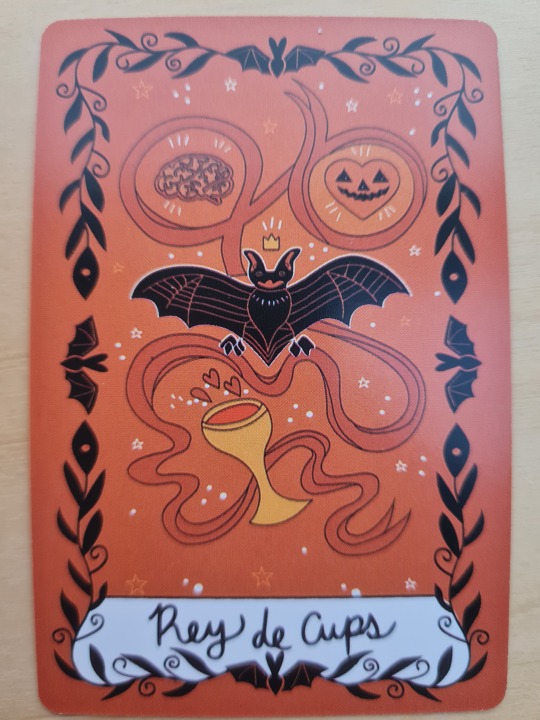
Whats Missing - Seven of Swords
Represents deception and dishonesty.
Running away from problems
Lack of integrity
Self-deception
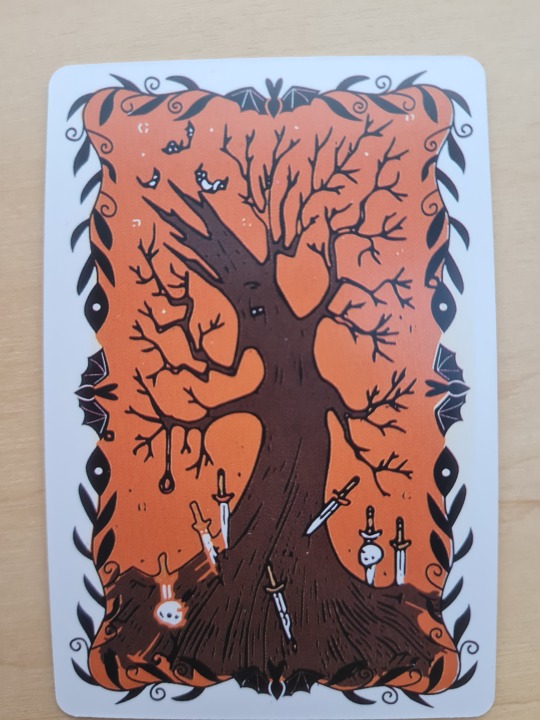
Path Behind - King of Pentacles
Symbolizes prosperity, security and authority.
Hardwork
Managing resources effectively
Wealth and power
Stability in the material sense
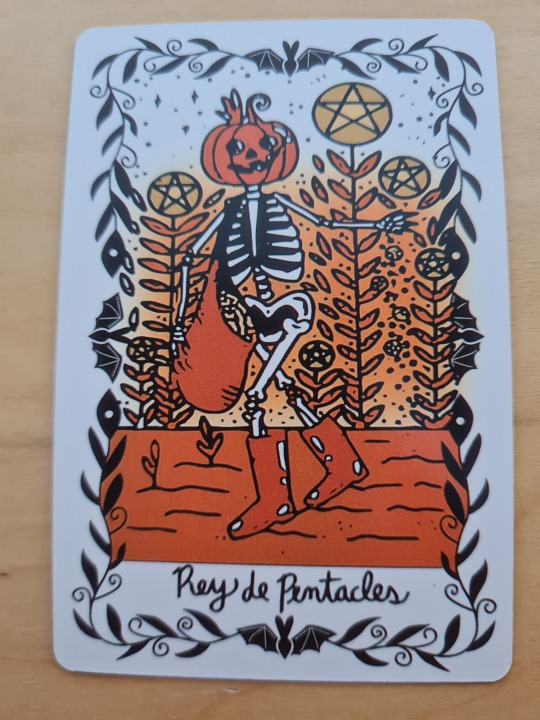
Path Ahead - The Devil
The shadow self. Attachement, addiction, seduction by the material world. Living in fear, bound by luxury and temptation.
Confront your fears
Be self-aware
Recognise you are telling stories to hold yourself back.
Self-imposed restraints.
Take responsibility for your journey.
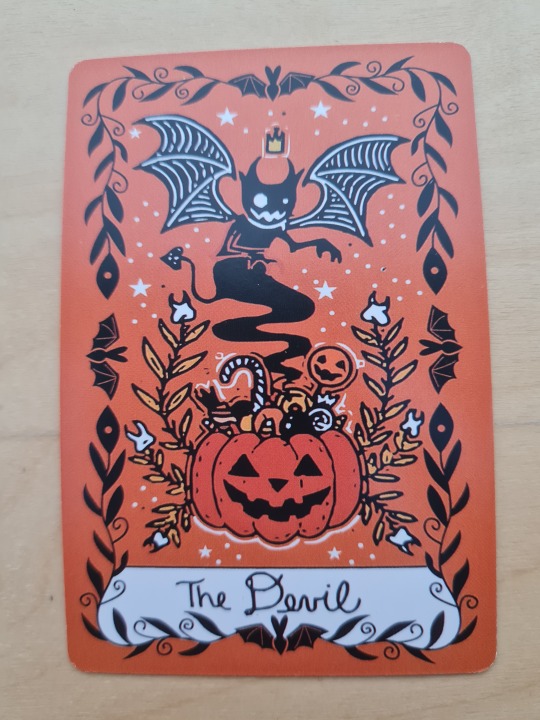
Obstacles - The Tower
Represents sudden change, destruction and liberation.
Unforseen catastrophe, crisis and danger
Room for potential growth and transformation with the opportunity to rebuild on a stronger foundation
Change.
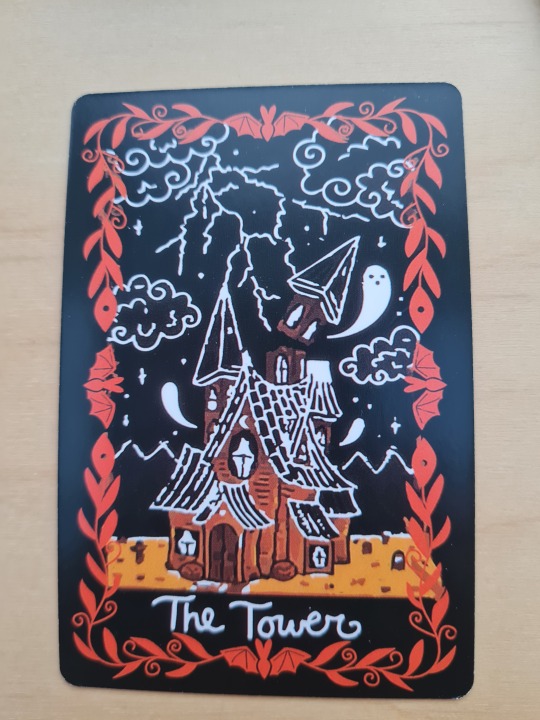
Windfall - The Star
Hope. Faith. Renewal of purpose. The opportunity card.
Overcoming past struggles
Beginning a new chapter
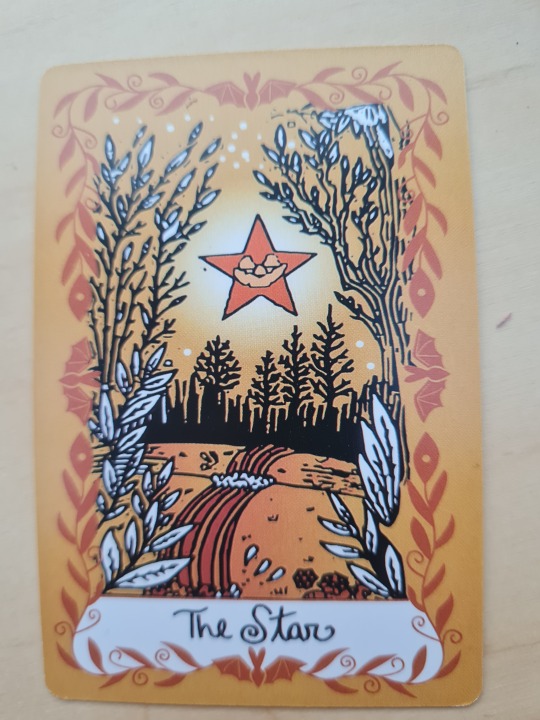
The Destination - Nine of Cups
Signifies a feeling of contentment, satisfaction and achieving what you desire.
Emotional fulfillment
Achieving goals
Self-satisfaction
Positive self-image
Guilt-free indulgence

I shuffled again for guidance on what was meant by 7 of swords and the devil cards and got this:
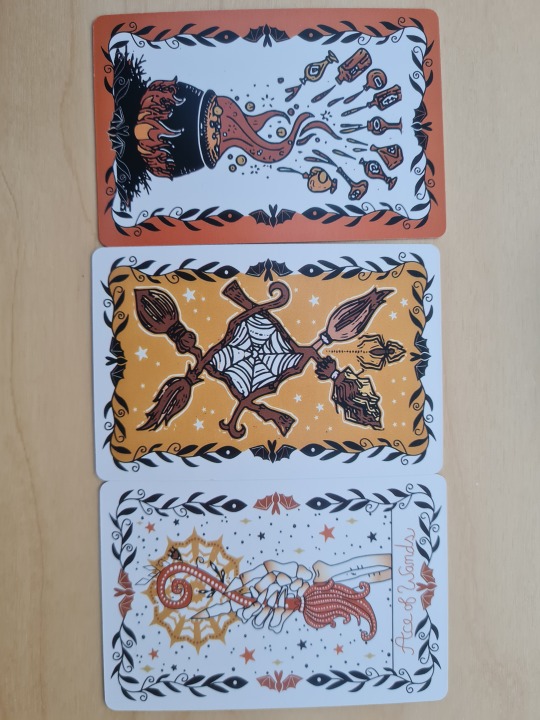
The layout is the Past, Present and Future. The past card is the 9 of cups, same as the destination from the first reading but the present is the 4 of wands reversed. Indicates a lack of stability and harmony in various areas of life. The future being the ace of wands reversed; circumstances are delaying progress. A lack of energy and motivation to prioritise certain areas of life.
Overall, I think the first reading for 2025 is one of the best I've ever done for myself. My other tarot deck was very positive but this is one seems to be realistic.
I am the King of Cups. I must conisder my values and how they align with what I want to achieve in the long-term. The 7 of Swords highlights that I have a tendency to deceive myself. I think I'm more than I am and I put more pressure on myself which when I don't meet that expectation leads me to spiral and hide from my problems.
The path behind being the King of Pentacles, I think is with regards to the promotion I've just got from work. For the last three years I've been working there I've been wanting and looking for a new job but have had no luck. New employers bought the company and after six months I'm finally being paid what I believe I ought to be and have the path to progress in front of me. So its now one less thing to worry about currently.
I think the Devil represents my greatest enemy, my shadow self, where every good intention I have goes to die the moment I'm not in a good mood, under stress, tired or anxious. It's a warning that I should take control of my life and myself.
The Tower couples with this, the shadow self and destruction as the path ahead and it's obstacles.
The windfall and destination are where it picks up, which is what leads me to believe the last two are indeed warnings. If I muddle through those, I will overcome my past struggles, start a new chapter in life, achieve my goals and feel fulfilled.
A pretty good reading for a new year.
0 notes